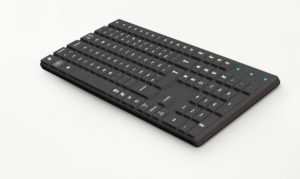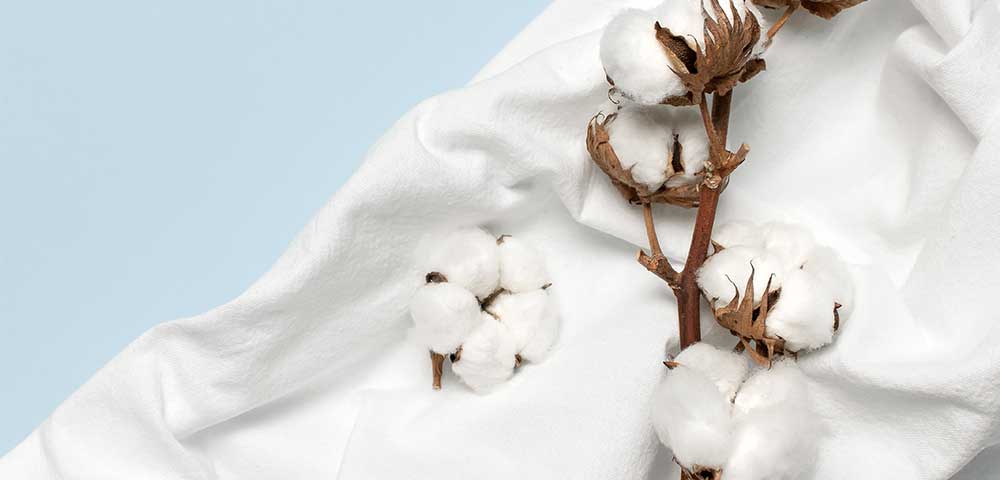 As part of her master thesis in Integrated Design at the University of the Arts in Bremen, Lena Kölsch looked at cotton and its trendsetting applications as a technical fibre. Before this, she had already concentrated on cotton as technical fibre in innovative material compositions during a semester project. Ms. Kölsch developed her master’s thesis designing and producing a keyboard made of cotton with the help of a special procedure in cooperation with the Fibre Institute Bremen (FIBRE).
As part of her master thesis in Integrated Design at the University of the Arts in Bremen, Lena Kölsch looked at cotton and its trendsetting applications as a technical fibre. Before this, she had already concentrated on cotton as technical fibre in innovative material compositions during a semester project. Ms. Kölsch developed her master’s thesis designing and producing a keyboard made of cotton with the help of a special procedure in cooperation with the Fibre Institute Bremen (FIBRE).
The project focuses on cotton processed to textiles. This especially features cotton’s positive natural characteristics such as softness and moisture regulation. A composition of the natural fibre cloth and the biological man-made fibre Polylactid (PLA) make up a textile fabric shaped like a keyboard using the specific advantages of both fibres. The polymer Polylactid, which is biodegradable just like cotton, belongs to the group of polyesters. The PLA fibres are produced from 100% renewable resources and are based on lactic acid. PLA is already used, among other things, in packaging.
On closer examination, it becomes obvious that cotton has a large potential for use in technical textile products, e.g. in the automotive industry, construction engineering, architecture, health care or industrial safety. Cotton has already been used in technical textiles including car ceilings, mattresses, furniture and various medical articles.
Cotton plays a major role in the textile when typing on the computer keyboard. On the one hand, the textile character provides a special surface feel. On the other hand, the typist benefits from the good moisture absorption of the cotton fibres. The moisture doesn’t stay on the surface of the keys so that the fingers of the user do not slip off. Additionally, the textile material provides a cushioning effect. Loud noises resulting from quick typing on the keyboard can thus be eliminated.
Since the keyboard is completely covered by the textile, crumbs or other dirt cannot not slip underneath the keys. Moreover, while the keyboard is quite flexible thanks to the textile, it is nonetheless stable, hence it can be transported easily.
Individualising products is on the advance and the textile keyboard can also be customised; various colours and patterns are possible.
A substantial advantage of the textile keyboard relates to its integral design concerning the product lifecycle. Against the background of debates on sustainability, the aspect of waste disposal plays a decisive role alongside the production and processing of the raw material. However, this aspect is often not included in the design process of a product. Having used the biodegradable material composition of cotton and PLA, the aspect of “end of life” has been taken into consideration from the very beginning while designing the textile keyboard.
The process technologies presented in the thesis are part of an AiF-project of the Fibre Institute Bremen (FIBRE). ‘AiF’ stands for the Federation of Industrial Research Associations. Axel Drieling, Senior Manager Cotton of FIBRE, is convinced of the future relevance of cotton fibre in technical textiles. FIBRE will therefore be pursuing further innovative projects in this area.

